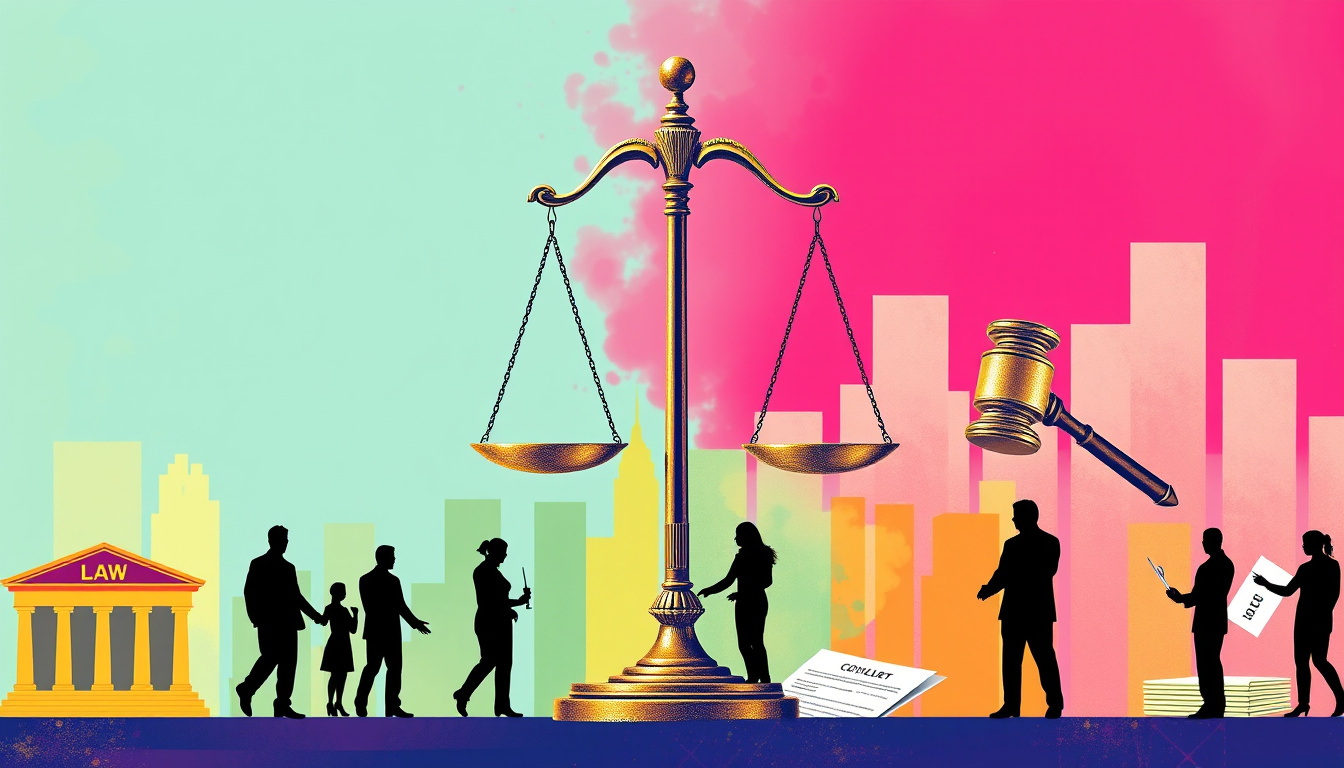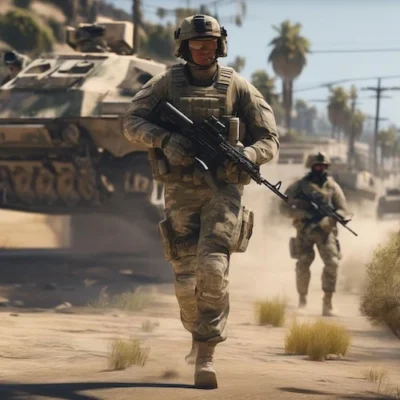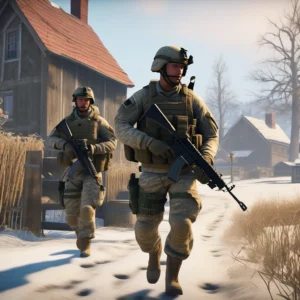Military sexual assault crimes are a pervasive issue within the armed forces, impacting the lives of countless servicemembers and their families.
The very nature of military life, characterized by its unique culture and environment, often complicates the reporting and handling of these crimes.
As the Department of Defense (DoD) has reported increased numbers of military sexual assault incidents over the years, understanding these crimes, their statistics, and their consequences is crucial for military personnel.
This comprehensive guide explores the landscape of military sexual assault crimes, the metrics illustrating the troubling prevalence of these offenses, the lasting effects on victims, the reporting mechanisms established within the military, the legal framework governing accountability, and the prevention strategies in place.
Moreover, it calls for a collective effort among servicemembers, leadership, and communities to foster a culture of zero tolerance towards sexual assault in the military.

Key Takeaways
- Military sexual assault crimes are a pervasive issue within the armed forces that require immediate attention.
- Statistics reveal alarming rates of sexual assault incidents in the military, highlighting the need for comprehensive reform.
- Victims of military sexual assault face numerous challenges, including emotional trauma and barriers to reporting their experiences.
- There are established reporting mechanisms within the military, but many incidents go unreported due to fear of retaliation or stigma.
- Preventative measures and initiatives are crucial in addressing military sexual assault crimes and fostering a safer environment for all service members.
Introduction to Military Sexual Assault Crimes
Military sexual assault crimes are a serious and significant concern within the armed forces, affecting servicemembers and their families in profound ways.
These crimes encompass a range of offenses, including sexual harassment, sexual assault, and related offenses, which can lead to severe legal consequences under the Uniform Code of Military Justice (UCMJ).
Understanding the nature of military sexual assault crimes is crucial for those involved, as it provides clarity on the legal framework and the potential repercussions of such allegations.
This introductory overview aims to equip servicemembers and their families with the essential knowledge needed to navigate the complexities of military sexual assault crimes, including their rights, the reporting process, and the importance of seeking legal counsel.
Statistics on Military Sexual Assault
According to the Department of Defense (DoD), there has been a notable rise in reported incidents related to military sexual assault crimes in recent years.
In 2021 alone, the DoD reported approximately 8,000 cases of sexual assault involving military personnel, marking a disturbing trend that demands attention.
These statistics not only highlight the prevalence of military sexual assault, but they also underline the urgent need for effective prevention strategies and support systems for victims.
Furthermore, a significant number of these crimes go unreported, contributing to a culture of silence that perpetuates the issue.
Understanding the statistics surrounding military sexual assault crimes is crucial for servicemembers and their families, as it can inform them about the risks and the necessary measures to take for protection and support.
As these statistics evolve, it is vital for military personnel to remain vigilant and proactive in fostering a safer environment for all.
‘Injustice anywhere is a threat to justice everywhere.’ – Martin Luther King Jr.

Impact on Victims
Military sexual assault crimes have far-reaching and devastating effects on victims, extending well beyond the immediate trauma of the incident.
For those who serve in the armed forces, these types of crimes can lead to profound emotional and psychological consequences.
Victims may experience feelings of shame, guilt, and isolation, often exacerbated by the hierarchical and close-knit nature of military life.
Moreover, the stigma associated with being a victim of sexual assault can hinder their willingness to report the incident or seek help.
Many face pressures that can delay or complicate their recovery process, including fear of retaliation, doubts about a supportive environment, or concerns over the impact reporting will have on their military career.
Additionally, military sexual assault crimes can disrupt units and affect overall morale.
The trauma experienced by victims can lead to significant challenges in their personal and professional lives, contributing to issues such as Post-Traumatic Stress Disorder (PTSD), anxiety, and depression.
Understanding the multifaceted impact of military sexual assault crimes on victims is crucial for fostering a culture of support and accountability within the military community.
Reporting Mechanisms in the Military
Reporting mechanisms in the military are designed to address serious allegations, including military sexual assault crimes, ensuring that servicemembers and their families have a clear path to seek justice and support.
In recent years, there has been a significant focus on improving these mechanisms due to increased awareness of the prevalence and impact of sexual crimes within military ranks.
Understanding these reporting options is crucial for victims, as it empowers them to make informed decisions about their circumstances.
The military provides two primary reporting options for those alleging military sexual assault crimes: restricted reporting and unrestricted reporting.
Restricted reporting allows victims to confidentially disclose details of the incident to specific individuals, such as sexual assault response coordinators (SARCs) and certain healthcare personnel, without initiating an official investigation.
This option can be beneficial for those who may be hesitant to come forward, as it focuses on providing support and resources, rather than punitive action.
On the other hand, unrestricted reporting allows the victim to report the assault officially, triggering an investigation by the military’s criminal investigative organization.
This route may result in legal action against the alleged perpetrator, but it also means that the victim’s identity may be disclosed throughout the process.
It’s essential for servicemembers and their families to understand that, regardless of the chosen reporting mechanism, they have access to various resources and support services.
These can include legal assistance, counseling services, and advocacy resources, all available to navigate the complexities of dealing with military sexual assault crimes.
Additionally, the Department of Defense has enacted policies to enhance the protection and support of victims throughout the reporting process.
This includes the establishment of the Special Victims Counsel program, providing legal representation to victims of sexual crimes in the military.
Having competent legal support can significantly impact the victim’s experience, ensuring their rights are upheld and their voices are heard in both legal proceedings and counseling sessions.
In conclusion, knowing the reporting mechanisms available for military sexual assault crimes is vital for servicemembers and their families.
Armed with this knowledge, they can take the necessary steps to seek justice while also accessing the support systems specifically designed for their unique circumstances.
Becoming familiar with these options is not just a matter of legality but is also a crucial part of fostering a culture of accountability and healing within the military community.

Legal Framework and Accountability
When dealing with military sexual assault crimes, it’s essential to understand the legal framework that governs the enforcement of justice within the armed forces.
The Uniform Code of Military Justice (UCMJ) provides the key regulations and guidelines that military personnel and their families must navigate.
This comprehensive legal structure not only sets forth the definitions and consequences of various offenses, including sexual assault, but also ensures accountability for those who commit such crimes.
For active-duty servicemembers facing allegations, the legal landscape can seem daunting.
You may feel uncertain about your rights and responsibilities.
The UCMJ is designed to maintain discipline and order within the military, but it also offers protections and a due process for the accused.
Understanding the nuances of these laws is crucial for anyone facing accusations or undergoing administrative actions related to military sexual assault crimes.
If you’re a military servicemember or a family member dealing with such allegations, seeking legal counsel from a qualified attorney experienced in military law is a vital step in ensuring that your rights are not only recognized but respected throughout the process.
Prevention Strategies and Initiatives
### Prevention Strategies and Initiatives
Military sexual assault crimes have garnered significant attention in recent years, leading to an urgent need for effective prevention strategies and initiatives within the armed forces.
The Department of Defense (DoD) is actively working to combat this pervasive issue through a variety of programs aimed at educating servicemembers, fostering a supportive environment for victims, and ensuring that offenders are held accountable.
One of the primary prevention strategies involves the implementation of comprehensive training programs that address the nuances of consent, the impact of sexual assault on individuals, and the importance of bystander intervention.
In addition to training, the DoD has established support systems such as the Sexual Assault Prevention and Response (SAPR) program, which provides education, resources, and confidential services for victims of military sexual assault crimes.
Through proactive outreach, these initiatives encourage victims to come forward and seek help without fear of reprisal, instilling a culture of trust and empathy within military communities.
Furthermore, collaboration between military and civilian organizations aids in creating policy reforms and advancing research on effective prevention strategies.
It’s essential for military families to be aware of these programs and to engage in discussions about consent, boundaries, and respect to cultivate an environment that actively prevents military sexual assault crimes.
Creating a culture that prioritizes safety and accountability requires collective effort; through awareness and proactive measures, the military community can work together to eliminate the stigma surrounding these crimes and support those who have been affected.

Call to Action for Change
The landscape surrounding military sexual assault crimes has become a critical issue within the armed forces.
If you or someone you know is facing accusations related to military sexual assault crimes, it’s vital to seek immediate legal support and advocacy.
The consequences of these allegations can be severe, ranging from administrative separation to court-martial.
You are not alone in this journey, and change is not only necessary, but it is also achievable.
Engage with organizations that focus on military justice reform and advocate for victims’ rights.
Your voice is powerful, and by standing together, we can initiate meaningful change within the military justice system to better protect servicemembers and their families from the repercussions of wrongful allegations.
Act now—together, we can redefine the narrative around military sexual assault crimes.
Frequently Asked Questions
What are military sexual assault crimes?
Military sexual assault crimes refer to any sexual violence or misconduct occurring within the armed forces, involving active duty personnel, veterans, or military family members.
What are the statistics on military sexual assault?
Statistics show that military sexual assault remains a significant issue, with thousands of cases reported annually, and estimates suggest that many more incidents go unreported.
How do military sexual assault crimes impact victims?
Victims of military sexual assault often experience severe psychological effects, including PTSD, anxiety, depression, and difficulties reintegrating into military or civilian life.
What are the reporting mechanisms for military sexual assault?
The military offers several reporting mechanisms for victims, including restricted and unrestricted reporting options, which allow victims to choose whether to inform their command or seek medical and legal assistance.
What can be done to prevent military sexual assault?
Prevention strategies include implementing comprehensive training programs, raising awareness, improving reporting systems, and fostering a culture of respect and accountability within the military.
If you or a loved one is under investigation or facing charges under the UCMJ, don’t wait to protect your future. Contact Gonzalez & Waddington, Attorneys at Law. Our battle-tested military defense lawyers have successfully defended service members worldwide against the most serious military offenses. Call us today for a confidential consultation and put our elite military defense attorneys in your corner.
Related Posts
- Joint Base Elmendorf-Richardson Military Defense Lawyers
- Understanding Article 107 UCMJ: Navigating False Official Statement Charges in Sexual Assault Cases
- Video: Davis Monthan Article 120 UCMJ Military Defense Lawyers – Tucson AZ Court Martial Attorneys
- Charges dropped in neurosurgeon’s alleged rape of intern



